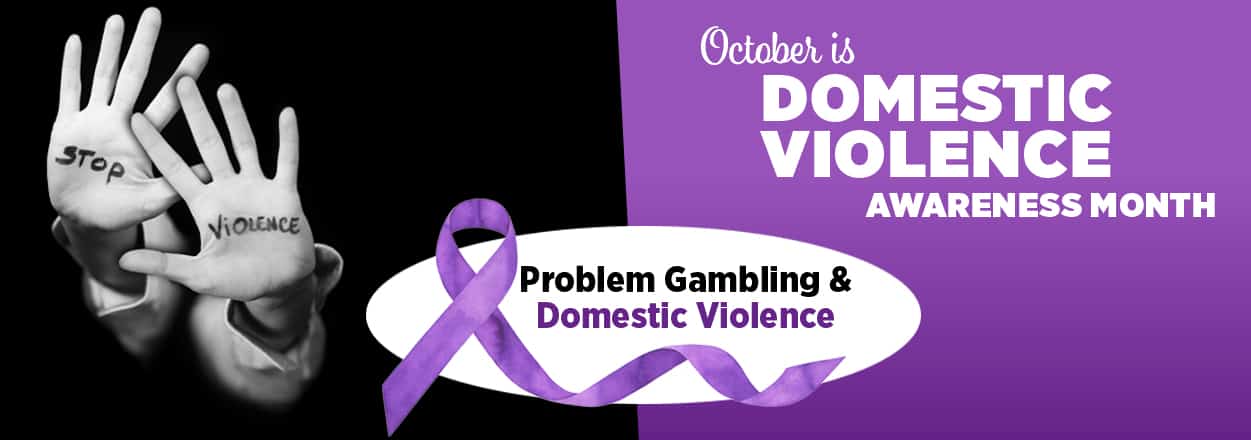Almost 90% of Americans engage in some form of gambling each year. For many gambling can be a form of recreation, for others gambling can become problematic and even harmful.
Problematic gambling not only harms the individual by way of financial or job loss, but it can also be harmful to the family as a whole. This harm may manifest into psychological or physical dangers such as domestic violence. Although gambling does not directly cause domestic violence, it can intersect in a variety of ways.
Problematic gambling is an addictive disorder characterized by thoughts and behaviors that negatively impact the individual and their loved ones. Signs can include lying about time and money spent gambling, preoccupied thoughts about gambling, and/or becoming irritated, agitated, or violent when unable to gamble.
A majority of research has focused on the physical forms of domestic violence; however, economic abuse is highly prevalent among women experiencing gambling related domestic violence. The problematic gambler may deny access to money, or the gambler may exploit their partners personal assets. Conversely, gambling venues may serve as safe spaces for women, where there are few alternatives.
The Center aims to raise awareness about the impact of problematic gambling and its link to domestic violence to community leaders, service providers, healthcare workers, and other organizations by encouraging the integration of gambling screening and assessment. If you are someone you know is impacted by gambling harms or domestic violence, please call 1-800-GAMBLER and/or use the resources below.
STOP THE HARM – STOP THE VIOLENCE
Help for the Gambler
- Do not borrow money to gamble.
- Know the odds and the house edge.
- Set a timer to manage time gambling.
- Make an appointment to speak to a licensed counselor at no cost to you.
Help for the Family Member
- Create a safety plan: where to go and who to call in an emergency.
- Inform people you trust about your plan and allow them to help you.
- Safeguard your finances and personal documents.
- Make an appointment to speak to a licensed counselor at no cost to you.
Did you know?
- Nearly 25% of pathological gamblers reported engaging in spousal abuse
- Over 15% of pathological gamblers reported engaging in child abuse
- Children of problem gamblers are two-three times more likely to be abused by a parent than their peers.
- Wives or intimate partners of problem gamblers are 10.5 times more likely to visit an emergency room as a result of being physically assaulted, compared to wives or intimate partners of problem drinkers.




